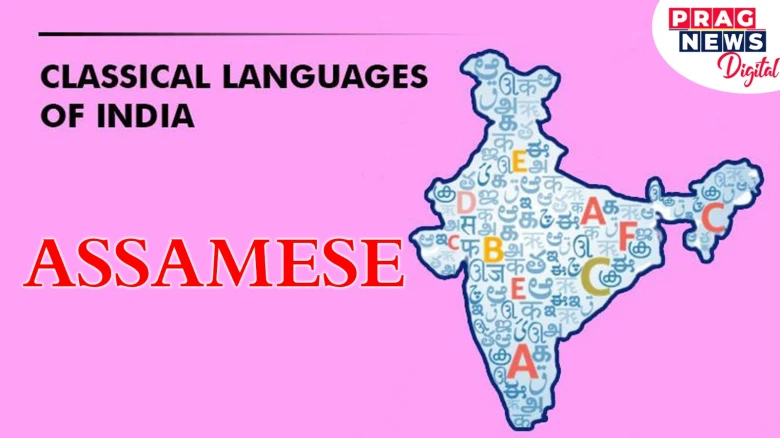Regional

By granting the Assamese the classical status, the Central Government acknowledges not just the historical significance of the language…
Digital Desk: On 3rd October, the Indian government took the honor of celebrating Assam’s rich literary and cultural history by granting Assamese with the prestigious status of classical language. This announcement is a great moment of pride for Assam and its people, underscoring the linguistic diversity of a language that came into being centuries ago. This announcement has uplifted the beautiful Assamese language alongside other classical Indian languages like Tamil, Karnataka, and Telugu Malayalam. Along with Assamese, four other languages—Marathi, Pali, Bengali, and Prakrit—were also honored with the title of cultural language.
For Assamese people, this recognition is a matter of immense pride. By granting the Assamese language a classical status, the Central Government acknowledge not just the historical but also the contributions of its people towards India’s literary and cultural legacy. Legends like Sankardev, Lakhinath Bezbaruah, Jyotiprasad Agarwala, Nilomoni Phukan, and how can one forget ‘The Bard of Brahmaputra’, Bhupen Hazarika contributed so much to the
state for the Assamese language.
The classical recognition now will open new doors for promoting and preserving the Assamese language and literature. Moreover, it will also attract more people to
pursue and learn the beautiful language. This initiative by the government will
further cement Assamese as a key subject of study in universities across India
and abroad.
What makes a language ‘classical’?
Classical language status is not given easily. There are several things a language must be able to do in order to qualify. There must be a substantial volume of material written within the last 1,000–1,500 years. As for Assamese, its literary legacy goes back to the 9th century AD, with its roots intertwined with the ancient Kamrupi dialect and early Sanskrit tradition.
With this recognition, Assamese will continue to be a shining beacon of India’s linguistic diversity for generations to come. It will also inspire the younger generation to take pride in their linguistic heritage and actively participate in its preservation.
Leave A Comment